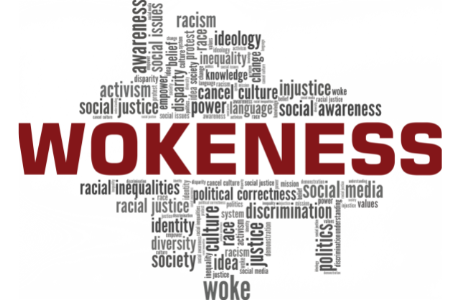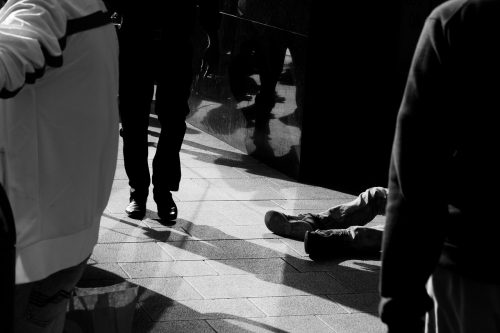McCrindle Research’s Faith and Belief in Australia Report was published in May this year and gave some excellent insights into the spiritual state of the nation. A part of the paper that particularly interested me was the things that attracted and repelled people from religion or spirituality.
Attraction To Faith
The main thing that draws people to a religion, or to investigate spiritual things, is observing someone who has a genuine faith. Other attracting factors include experiencing personal trauma or a significant life change, or by hearing stories or testimonies from people who have changed due to their belief. One the biggest turn offs is the telling of miraculous stories of healings or supernatural occurrences. In other words, Australians are interested in hearing about someone’s life that has changed because of their faith, but they are not interested in everything working out miraculously. Why? It doesn’t reflect what life is like; it’s not genuine faith.
The Honesty of the Bible
The good news is that the Bible is full of stories where not everything works out well, and the book of Psalms is a particularly valuable resource of stories just like that. The 150 Psalms can be divided into three main groups:
- Everything is wonderful, praise the Lord, hallelujah!
- Everything is not wonderful, I’m struggling like crazy, but the Lord is going to rescue me.
- Everything is not so good, I’m trying like mad, I’m praying hard, but God’s not listening, in fact, I think He’s gone missing.
A Psalm that fits into the last category is Psalm 88 – a contemplative song or poem set to a familiar tune from 645 B.C. titled “The suffering of affliction”. Take some time to read Psalm 88, and you’ll be surprised at how honest the author (Heman) is. He’s overcome with troubles, is feeling weak and overwhelmed, his friends and neighbours have deserted him, and he’s grieving as a result. He’s praying to God every day, but he feels like God is hiding from him or just not listening.
You’ve probably read this Psalm but underlined little. You may have wondered why it’s in the Bible, but I’m so glad it is because it reminds us that life is not always fair, and God seems to be completely comfortable with the author’s expressions of injustice. Think about it, the Holy Spirit inspired Heman to write this Psalm, and the Israelites kept it for hundreds of years so that it’s in the Bible. God wasn’t ashamed to have this Psalm included in His Holy Scriptures. He wasn’t yelling out, “Oh, you can’t say that about me; I’m God!”
In the Bible, God challenges people over many things including idolatry and their failure to show justice towards the poor and marginalised. He gets in the face of the hypocrites and the tightwads, but not once does he correct those who vent their frustration at him when they feel he’s disinterested, far away or has abandoned them, or when life is just not fair.
Jesus’ Struggle
Jesus could relate to Heman in that he too felt abandoned by God while he was on the Cross. As he was dying, Jesus quoted a Psalm that he would have memorised when he was younger. He thus used someone else’s experiences to express his own; that’s why Psalm 22 is “The Psalm of the Cross.” It begins with, “My God, my God, why have you forsaken me? Why are You so far from helping me, and from the words of my groaning?” It’s encouraging for us to know that Jesus fully experienced the human condition including what it is like to feel abandoned by God and for things not to work out the way he wanted them to – that life is not always fair.
Our Struggles
The Bible tells of many great men and women of faith who experienced life’s unfairness. For example, in Hebrews 11, the author takes the first 35 verses to tell great stories that all had miracle endings. If you stopped there you’d feel that your own life was completely inadequate because you just don’t match up to these amazing people. But life is not always fair, so he goes on to tell about “the others” “who were tortured … faced jeers and flogging, and even chains and imprisonment. They were put to death by stoning; they were sawed in two; they were killed by the sword. They went about in sheepskins and goatskins, destitute, persecuted and mistreated—the world was not worthy of them. They wandered in deserts and mountains, living in caves and in holes in the ground. These were all commended for their faith, yet none of them received what had been promised.” All these people faced gross unfairness, significant difficulties and challenges in life. They died without receiving the answer to their prayers, but they are all referred to as people with strong faith.
The people’s lives mentioned in Hebrews 11 didn’t finish well, and neither does Psalm 88, “You have taken from me friend and neighbour—darkness is my closest friend.” The end! Ever felt like that? Ever blamed God? Ever felt guilty about feeling like that and blaming God? I have and I imagine I’m in good company.
Genuine Faith is Honest Faith
The fact that life is not always fair enables us to be honest and realistic about our faith and remember that people in Australia are looking for people of genuine faith, not a faith where everything works out miraculously. One of the most honest conversations I’ve ever had was with Myuran Sukumaran in January 2015. I was in Kerobokan prison, visiting Andrew Chan for his 31st birthday, when I found out that Myu’s appeal had been denied. I asked him if he’d like to talk about it, and the next morning we spent about three hours talking this through. During our conversation, I asked him how his faith in God was going, and he told me he was angry with God. I said that I didn’t think that was a problem and that God was big enough to handle his anger. I encouraged him to read the Psalms in which so many of the authors express their anger towards God. Myu took me at my word, read the Psalms and started his journey back to faith in God over the next few months before his execution.
As Peter Enns states: “Expressions of abandonment aren’t godless moments, evidence that something is wrong and needing to be fixed. They relay the experiences of ancient men and women of faith, and were kept because those experiences were common … for us they signal not only what can happen in the life of faith, but also what does happen.” [1]
People are looking for a genuine faith that is honest and realistic, not one that always has to have a Disney ending. I encourage you to be authentic in your faith and, if you’re considering finding out more about Christianity, realise that you’ll be coming to God who loves you just the way you are and that you can be completely honest with him.
For more on this topic listen to my message When Life Is Not Fair.
[1] The Sin of Certainty, Peter Enns (P. 60)







